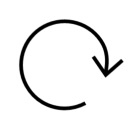○○○ zillion ⪢⪢
Though the economy might seem complex, it works in a simple mechanical way. It's made up of a few simple parts and a lot of simple transactions that are repeated over and over again a zillion times.
http://qindex.info/i.php?x=19874
○○○ needless ⪢⪢
The economy works like a simple machine but many people don't understand it or they don't agree on how it works. And this has led to a lot of needless economic suffering.
http://qindex.info/i.php?x=19882
○○○ lay ⪢⪢
We'll look at these three forces and how laying them on top of each other creates a good template for tracking economic movements and figuring out what's happening now.
http://qindex.info/i.php?x=19885
○○○ economy ⪢⪢
An economy is simply the sum of transactions that make it up and a transaction is a very simple thing. You make transactions all the time. Every time you buy something, you create a transaction.
http://qindex.info/i.php?x=19886
○○○ government ⪢⪢
A central government that collects taxes and spends money and a central bank which is different from other buyers and sellers because it controls the amount of money and credit in the economy.
http://qindex.info/i.php?x=19895
○○○ lender ⪢⪢
Lenders usually want to make their money into more money and borrowers usually want to buy something they can't afford like a house or a car or they want to invest in some thing like starting a business.
http://qindex.info/i.php?x=19897
○○○ fluctuate ⪢⪢
Productivity matters mostly in the long run but credit matters mostly in the short run. This is because productivity growth doesn't fluctuate much. So it's not a big driver of economic swings.
http://qindex.info/i.php?x=19905
○○○ debt ⪢⪢
Debt is because it allows us to consume more than we produce when we require it and it forces us to consume less than we produce when we have to pay it back.
http://qindex.info/i.php?x=19906
○○○ swing ⪢⪢
Debt swings occur in two big cycles. One takes about 5 to 8 years and the other takes about 75 to 100 years. While most people feel the swings, they typically don't see them as cycles because they see them too up close - day by day, week by week.
http://qindex.info/i.php?x=19907

